Best wallet for Ethereum — Keep Your Coins Safe 2018
Best wallet for Ethereum — Keep Your Coins Safe 2018
So whats the best wallet for Ethereum?
Whenever something becomes more popular there are always predators waiting in the mist to take advantage and the blockchain and cryptocurrency community is no different, in fact, we would describe as slowly becoming one of the most ruthless communities to be part of with more and more scams seeming to appear with every ICO.
Security should be as important or even more important than trying to find that next 1000x Blockchain company at ICO because all of your time and money spent in researching and investing could all be lost in a second.
So what is the best Ethereum wallet? to begin with, let’s explain a little about Ethereum and ERC20.
Ethereuem was proposed by Vitalik Buterin, a cryptocurrency programmer back in 2013 and through an online crowd-sale in 2014, the open-source blockchain platform was developed. It finally went live in July 2015 and in 2016, Ethereum was split into two different blockchains, the new version became Ethereum (ETH) and the original continued as Ethereum Classic (ETC)
If you are reading this then you most probably have come across the term ERC20 token especially with the explosion of ICO funded blockchain start-ups. ERC stands for Ethereum Request for Comments and 20 is the unique proposal ID number.
ERC20 basically defines the set of rules that must be all met in order for a token to be accepted as an ERC20 token. The difference between these tokens and standalone tokens like Litecoin or Stellar is that ERC20 tokens piggyback of the Ethereum network, hosted by Ethereum addresses, hence ERC20 tokens transact on the same network as your Ethereum wallet address. Some of the top ERC20 tokens include EOS, OMG, and INS.
Now with that said, let’s look at our list of what we think are the best Ethereum compatible wallets, while we were comprising this list we took the following factors into consideration,
- Security and Backup
- User interface
- Control of Private Keys
- Scalability
- Development Community
Now we are familiar with the different wallets out there let’s explain how they work. Like conventional wallets are used to store fiat in cash or debit/credit cards for our convenience to use whenever we like, a cryptocurrency wallet acts very much in the same way.
How do they work?
It stores our public and private keys allowing our wallet to communicate with the particular blockchain when sending and receiving transactions. This allows us to store any cryptocurrency that is compatible with our wallet, carry out transactions and check the balance whenever we want.
However please note that unlike a conventional wallet, a cryptocurrency wallet does store a physical or tangible form of your coins, just your private and public keys which gives you access to your currency which only exists on the online ledger referred to as the ‘blockchain’. So when we receive Ether, it is the transfer of ownership from the sender’s public wallet address to our public wallet address
To access the shared currency, our public and private keys should match and the transaction will be validated on the blockchain. It is critical to keep our private keys safe as unlike conventional wallets, if you lose your private keys or share them, you are unable to order a new one or get refunds for transactions that were not yours and very much doubt there will be any good samaritans handing back your private keys for your cryptocurrency wallet at the local police station. Always protect your keys.
Hot and Cold Wallets
There are basically two types of wallets, hot and cold wallets. Hot wallets are those where the private keys are kept online (common with most exchanges). Hot wallets can be easily and quickly accessed via internet but are susceptible to hacks because of the online requirement.
Cold wallets are stored offline, the private keys are within the hardware or paper. These are much less vulnerable to hacks than hot wallets as the private keys are on connected online when required by the owner.
Hardware vs Software Wallets
Hardware Wallets
These are physical wallets usually designed like a USB device with our private keys encrypted. This is by far the most secure cold storage solution as our private keys are only submitted online when required and under our control. The most pricey solution.
Software Wallets
These wallets are usually online, mobile, or accessed via a desktop client.
Online — cloud-based and can be accessed on most devices with an internet connection, super fast access but poses small amount of risk to due to constant internet requirement
Mobile-These are apps based on our phones, they usually offer more features, are very very convenient but private keys are usually held by the third party app owner. Once again online so the risk of hacking is present, also could be difficult to recover if you lose the phone.
Desktop Client- These wallets are downloaded and stored on our computer hard drive. Only that specific laptop can access the wallet. Highly recommend backing up the wallet on an external drive in case of malware or hard drive malfunction.
Here is more in-depth look at the best wallet for Ethereum,
Ledger Nano S

With its ultra sleek design and user-friendly Oled screen interface, the Ledger Nano S is one of the best Etheruem wallet solutions currently on the market. The Ledger Nano S comes with the ability to create a recovery seed in case of lost or device malfunction. For added security users can also create a 4-digit pin which helps against keylogging and the device tapping transaction verification feature is an added bonus.
Overall the Leger Nano edges it competitors due to the value for money and smart security features. Best wallet for Ethereum
[maxbutton id=”6"]
Trezor
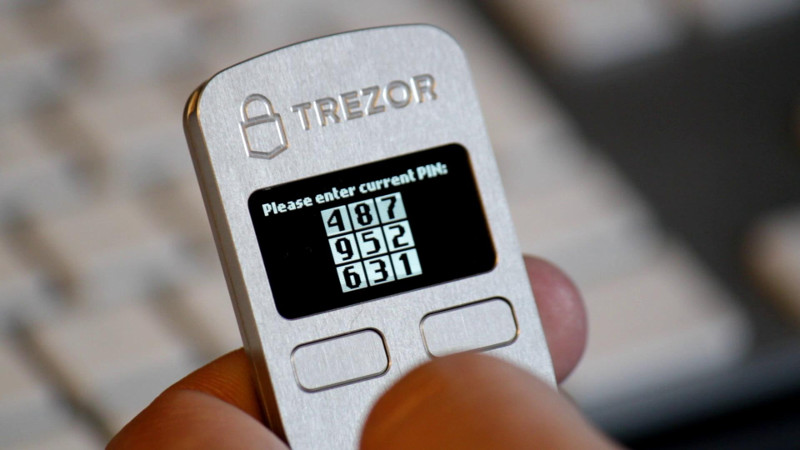
Originally invented for Bitcoin, with its elegant design, Trezor is now a leader in Ethereum storage.
Users are also now able to use MyEtherWallet interface. The device also comes packed with extra security features including 2-factor authentication, device tap verification, waterproof and seed recovery.
Very user-friendly with its OLED screen design, overall the Trezor hardware wallet is a solid choice, security packed and even though this is slightly more expensive than the Ledger Nano S, it’s still a bargain considering all the features it comes with.
[maxbutton id=”7"]
MIST
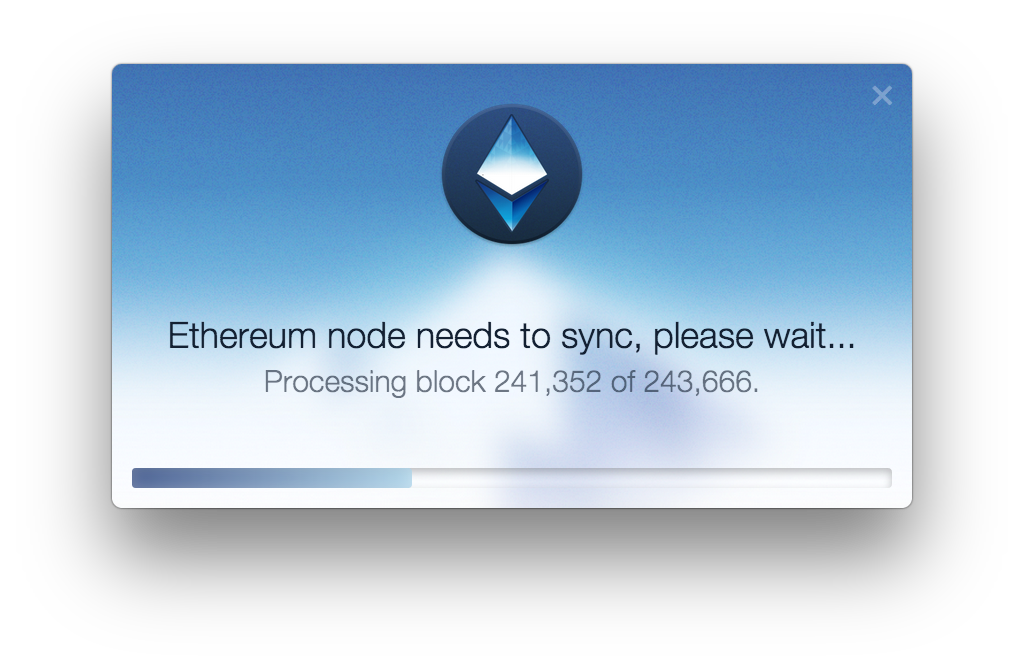
Mist holds the accolade of being the official wallet listed on the Ethereum project website. It is a desktop client wallet with a web interface, however, please note that the project is still in beta phase but support is provided by the development team through their GitHub page.
The wallet is compatible with Mac, Linux, and Windows. Mist wallet security features a password that can never be changed once set, so please back this up as your funds could be lost if forgotten.
The wallet is decentralized and offers complete anonymity, no personal information required for signup.
Overall this a good choice, not as secure as hardware wallets but free and you are in control of private keys. The user interface could be better, but with an official endorsement from the Ethereum project, this is a good choice.
[maxbutton id=”8"]
MyEtherWallet
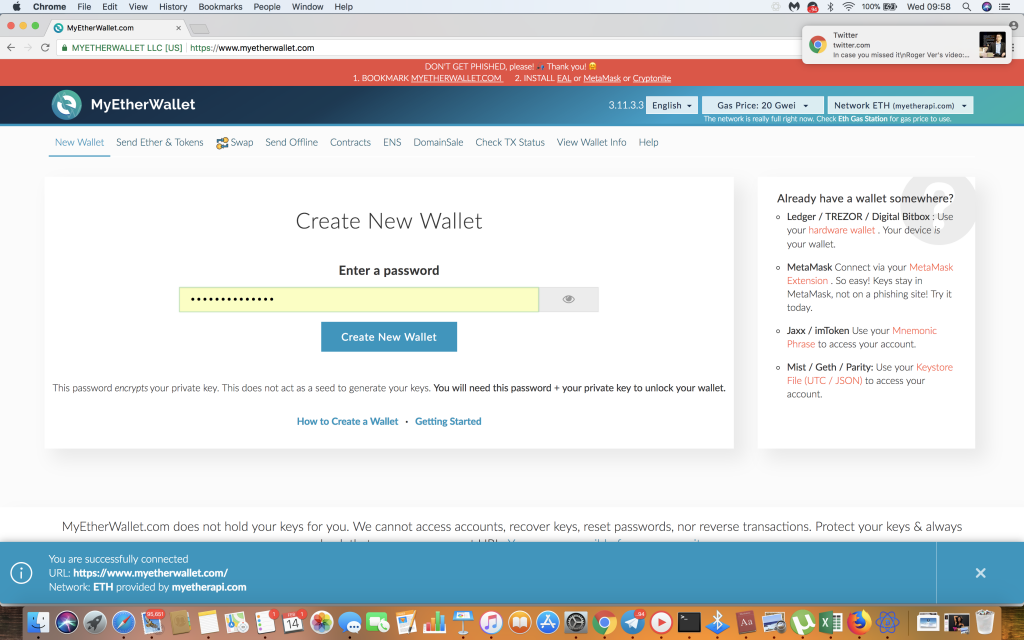
MyEtherWallet is an open-source web wallet for Ethereum and ERC20 tokens, meaning it allows users to write their own smart contracts.
It can also be integrated with Trezor and Nano Ledger S, the wallet is decentralized and users are solely responsible for storing private keys, users can also print paper wallets to store offline.
The wallet is a good choice but because of the fact it is open-source, people can write fake token contracts, so please be extra cautious when buying tokens on the site and always double check that the smart contract is the official one, we will explain how to do this in a later article.
[maxbutton id=”9"]
MetaMask
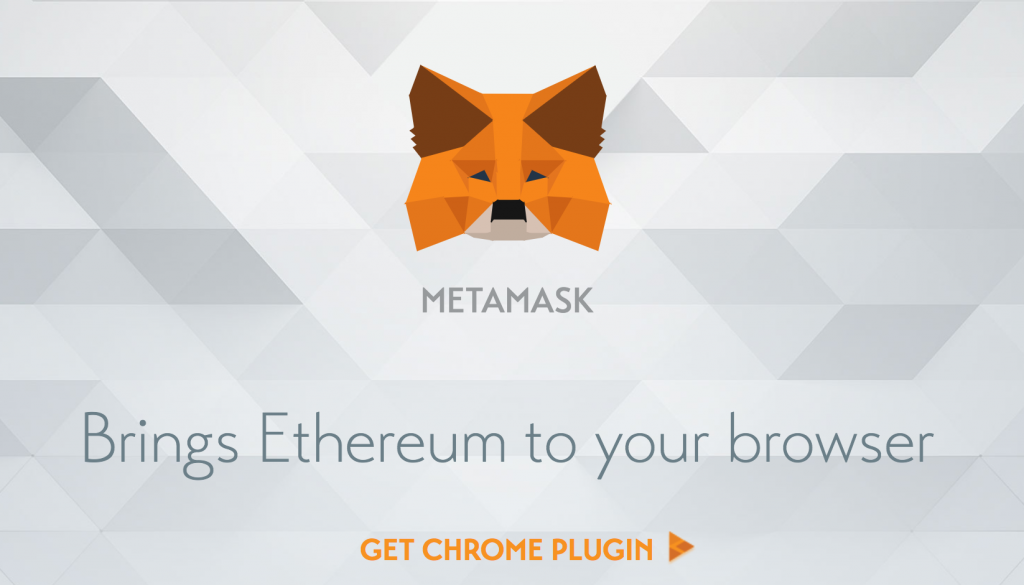
This is browser extension and is unique in the fact it not only acts as a wallet but also gives you the ability to run Ethereum dApps directly in your browser without the need for a full Ethereum node.
Your account information is stored locally in your browser and you are in full control of your private keys.
MetaMask is currently only available as a Chrome extension or on the Brave browser, it is a little tricky to get used to but have a great support page and a video on how it works, which is useful.
As a web-based wallet, MetaMask has the same risks associated with any web-based client, like viruses and hacks, but still a good choice and more than just a wallet.
[maxbutton id=”10"]
Coinbase
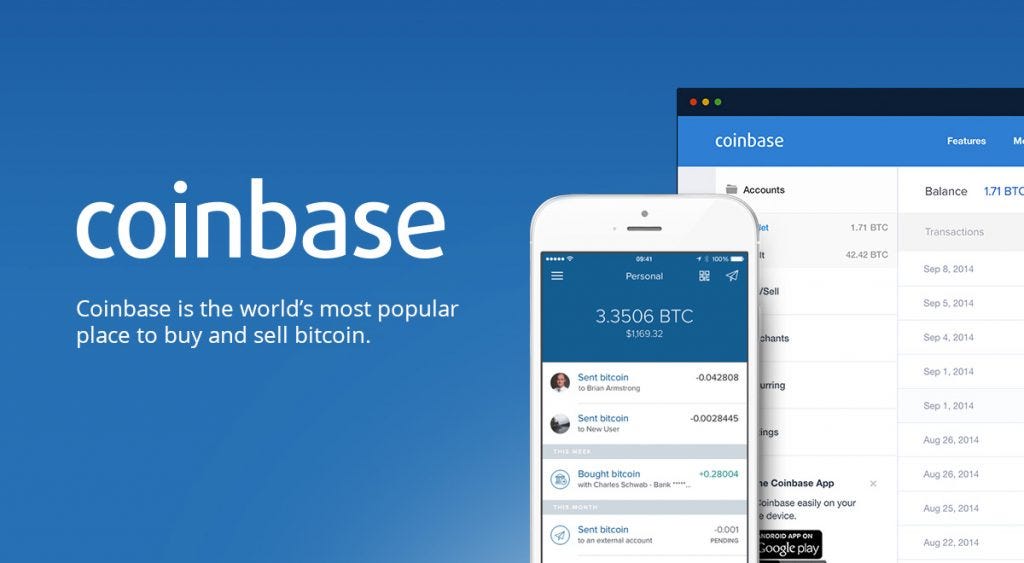
This is by far has the best user interface and is the quickest and simplest wallets on the market and is the reason it appears on most lists.
It acts as above an exchange and wallet and users can trade Bitcoin, Bitcoin Cash, Ethereum, and Litecoin.
Coinbase is an online platform and you do not have control of your private keys which is held by the company and comes with all the risks associated with the online platform.
Overall is most probably the quickest choice for newcomers as you can easily change fiat to crypto. You can look more in-depth at Coinbase here
[maxbutton id=”11"]
Final Thoughts
Security should be every investor priority whether you are a newcomer or seasoned whale, keep your coins safe. The most secure way to keep safe and in our opinion the best wallet for Ethereum is a hardware wallet and both the Trezor and Ledger Nano S are currently the best on the market. If for some reason you do not have access to a hardware wallet, then please always,
Always back up your wallet
Use a combination of security features
Always update your software
And finally double check everything.